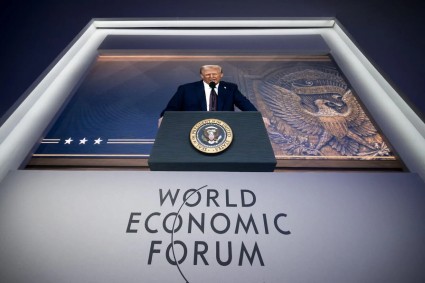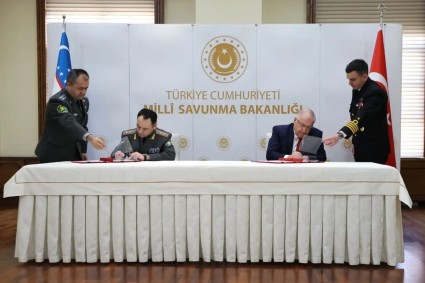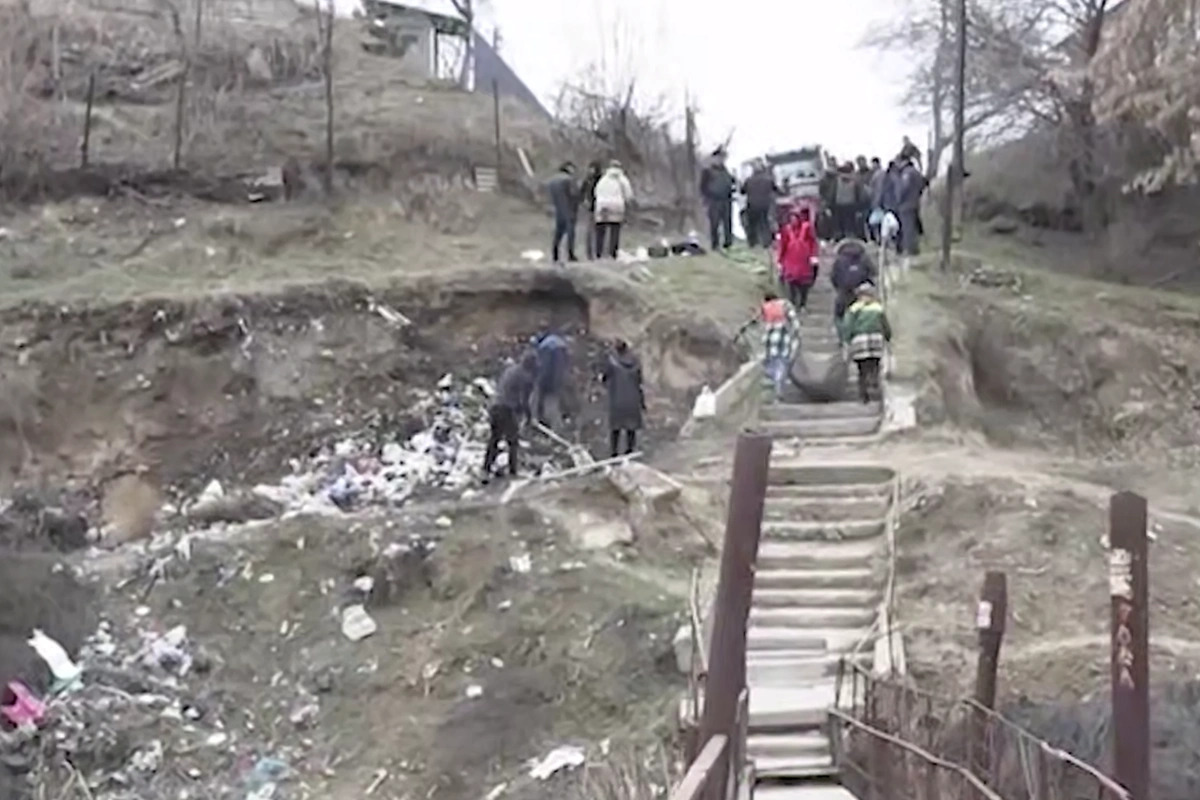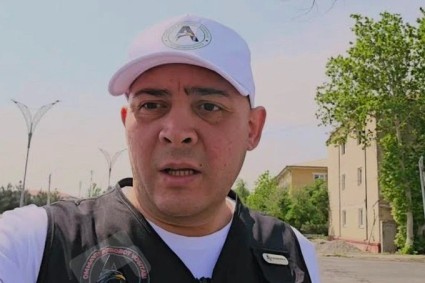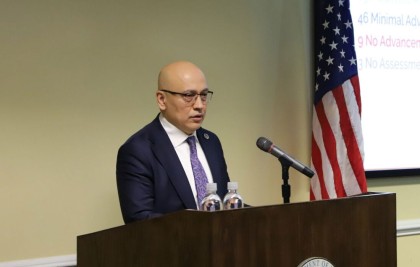The overall Human Rights situation in the Country has followed a positive trajectory following the election of President Mirziyoyev. As part of their ambitious reform programme, the leadership of Uzbekistan have undertaken significant efforts to improve Uzbekistan's Human Rights record, declaring 2017 "Year of dialogue with the people and human interests in Uzbekistan", the EU Human Rights Report 2017 said.
The Government adopted wide-ranging measures to fight corruption, to conduct judicial and administrative reforms and to increase transparency in law enforcement structures. Steps have been taken to cease malpractices in prisons and other places of detention (including for juveniles), with the aim of eradicating torture and other forms of ill-treatment, in line with the country’s commitments under the Convention against Torture as well as Uzbekistan’s Constitution and penal legislation, which both outlaw torture.
A significant number of EU prisoners of concern have been released in 2017 and it is presumed that this trend will continue through the annual Constitution Day amnesty, which is to be effectively implemented between January and March 2018. Authorities have also continued the process of granting citizenship to stateless persons residing in the country, which is a very positive and long expected step forward. Public authorities at all levels have manifested a more open and constructive approach towards cooperation with foreign partners in the human rights sphere and beyond.
Despite this positive trajectory, the overall Human Rights situation in Uzbekistan remains challenging and calls for further improvements. Human Rights concerns persist in connection to arbitrary extension of prison sentences, excessively strict regulations for NGO activities, restrictions in the areas of freedom of expression, information, religion, assembly and association. Furthermore, Uzbekistan has still not ratified the Optional Protocol to the Convention against Torture, which would enable to create an effective monitoring system in places of detention. Further positive steps are apparently under preparation, but more decisive action would be necessary to bring the country closer to international human rights standards.
Addressing forced labour in the cotton harvest remains a key EU priority. The issue is regularly and closely monitored in cooperation with the ILO and other stakeholders. ILO monitoring has concluded to the almost complete eradication of child labour in that context. Further progress has been achieved this year in improving labour conditions and raising wages. However, more should be done, mainly in relation to recruitment practices at local level. The EU has also encouraged the country to ratify a further twelve ILO Conventions, linked mainly to relations with the employers. The EU has continued to call for a stronger role and full independence of the Ombudsman, an institution which, according to the international standards, should take the lead on Human Rights issues.
The EU has engaged in Human Rights and democracy discussions with Uzbekistan in a number of settings, including the annual meetings of the EU-Uzbekistan Cooperation Council and Cooperation Committee, the Parliamentary Cooperation Committee, as well as during the EU – Central Asia Ministerial Meeting held in November 2017 in Uzbekistan back-to-back with the visit of HRVP Mogherini. The EU Delegation has also stayed in close contact with the Ombudsman and the National Human Rights Centre. Exchanges have covered a broad range of issues of concern. The EU has also expressed concern or welcomed positive developments through statements, speeches andinterviews to encourage Uzbekistan’s government to ensure full respect for human rights. In 2017the European Parliament's Subcommittee on Human Rights conducted a visit to Uzbekistan, during which human rights concerns were raised in all official meetings.
The EU has continued to provide financial support for projects funded through the Development Cooperation Instrument (DCI), Instrument contributing to Stability and Peace (IcSP) and EuropeanInstrument for Democracy and Human Rights (EIDHR). Three projects (two EIDHR and one DCI)totalling € 5.8 million supported reforms concerning child and forced labour in the cotton harvest,measures to reinforce the capacity of civil society in the field of human rights, the promotion andprotection of children’s rights, and the protection and promotion of the social, economic and cultural rights of vulnerable groups. In particular, the DCI project has continued to foster reformsand dialogue relating to labour rights in the cotton sector, including international monitoring of thecotton harvest and awareness-raising campaigns. The EU maintained close cooperation with UNDP,UNICEF, OSCE and WB.
In 2017 the UN High Commissioner for Human Rights made his first ever visit to Uzbekistan, wherehe met with the President and all main official interlocutors. The dialogue continued in the margins of UNGA in New York, where another meeting with President Mirziyoyev took place, following the latter's official speech, which included significant commitments in the field of Human Rights. The rapid reinvigoration of relations with the UN was supported by the Parliament's approval of a detailed roadmap concerning cooperation with UN OHCHR. The OHCHR Regional Office in Central Asia was also allowed to operate freely in Uzbekistan.
The first visit for more than fifteen years of a UN Special Rapporteur took place in 2017, when theUN SR on Freedom of Religion or Belief conducted a twelve-day mission to Uzbekistan, having been granted all requested meetings, including a visit to the highest security Jaslyk prison.
The OSCE Representative on Freedom of the Media visited Tashkent in 2017 and opened the 19th regional Central Asia Media Conference "Open Journalism in Central Asia". The Representative metwith senior government officials and representatives from civil society and the media to discuss media freedom issues in Uzbekistan. The Government also re-engaged with international NGOs, such as Human Rights Watch or the Uzbek-German Forum.

